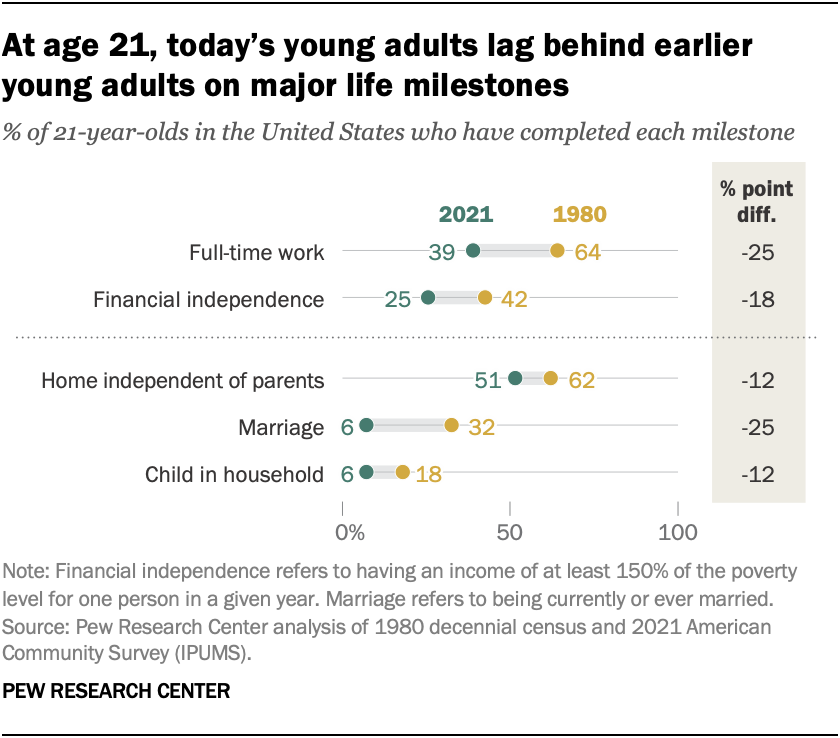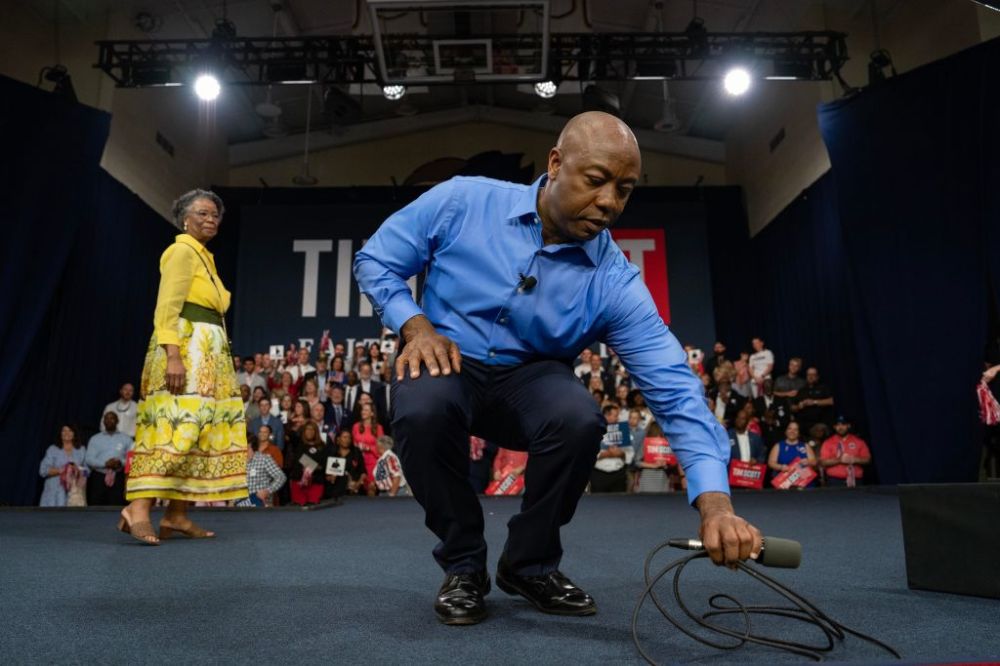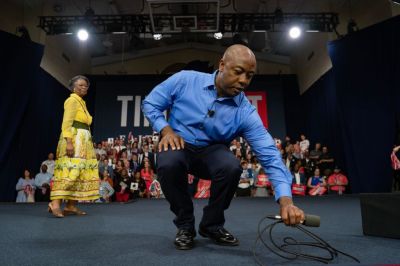After two years of getting set to run for president, Florida Gov. Ron DeSantis had a bad, really bad, really, really bad campaign announcement.
Whether that seriously damaged DeSantis’ chances, however, remains to be seen. What is clear, though, is that DeSantis’ launchpad immolation was an enormous gift to the other candidate who declared this week, South Carolina Sen. Tim Scott.
DeSantis’ team says it was able to raise more $8 million in his first day as an official candidate. They had better keep it up, because he has a very expensive campaign ahead of him and a lot of lost ground he must recapture before he can again enjoy the benefits he did in Republicans’ initial perception of the race.
DeSantis thrived in the telling of the race that held there could only be one candidate from the traditional GOP to face former President Donald Trump, the final boss. Other candidates who got in were only helping Trump, this reasoning went, by diluting the potency of DeSantis’ challenge. Donors, activists, and opinionmongers had to go all in on DeSantis or create the same divided-and-conquered scenario that let Trump ride a plurality to the nomination in 2016.
But this week showed why that theory does not hold, if it ever did.
Creating an air of inevitability is expensive and risky. DeSantis’ super PAC, led by Ted Cruz’s 2016 campaign manager, is getting ready to roll out a $100 million-early state push, running ads and hiring thousands of staffers. The candidate himself will barnstorm the states with the first three contests—Iowa, New Hampshire, and South Carolina—next week.
The goal here is to shut down the potential candidacies of others by locking down so much of the vote and so many key endorsements that others can’t catch on. This can work, as it did for George W. Bush in 2000, or it can turn into a giant suckhole of money, as it did for Bush’s brother, Jeb, in 2016. An “inevitable” candidate who proves to be very evitable indeed not only wastes great gobs of money but does huge damage to the party in the process. Running out of money is the cue for a failing candidate to go home, but an overfunded but underwhelming candidate is tempted not only to stay too long but to try to pull down other contenders in the process.
DeSantis has now opened the door on the significant possibility of the suckhole scenario and will need to go a long way to prove that he can really do this. While he’s struggling and unable to scare others out of the race, the structure of the contest itself is changing.
Former Vice President Mike Pence is certainly acting like a candidate, and seems headed for an early-summer entry into the race. Though not a heartthrob for many outside of the Christian conservatives who have long boosted him, Pence does represent a credible second-choice candidate for many other voters.
Virginia Gov. Glenn Youngkin is trying to send signals that he may dive into the race late this fall, already positioning himself to play white knight for the party if the initial contenders fizzle.
Chris Christie, the former New Jersey governor who went from Trump insider to searing critic of the former president, seems to be working his way up to something. And he is one who could seriously disrupt the race.
Then there’s the potential favorite-son bid of New Hampshire Gov. Chris Sununu, who is looking to enter the race next month; former South Carolina Gov. Nikki Haley, still a candidate in search of a reason; the Trump-thumping former governor of Arkansas, Asa Hutchinson; the little–known North Dakota Gov. Doug Burgum; the California recall candidate and radio host Larry Elder; and the gadfly former drug executive Vivek Ramaswamy, a potential stalking horse for Trump; and more also running or making moves.
So, by the time we get to the first debates in the late summer and early fall, Republicans will have a crowded field and one with at least as much or more talent and qualifications as the open-seat contests of 2016, 2012, and 2008.
If that’s the case, then South Carolinian Scott had a very good week, indeed.
It would have been nice enough to have managed a smooth launch that was well received by the press and party loyalists, but to have it followed by a botch from the “inevitability” candidate was a special kind of good fortune. The contrast was more than Scott could possibly have hoped for.
If DeSantis can get his footing and reconsolidate the non-Trump share of the vote, there’s not much Scott can do to break through. But if the contest turns into open-field running, he’ll be well positioned to be a strong contender come this fall.
It takes a lot of luck to win a presidential nomination, and Scott started his candidacy with a double dose.
Holy croakano! We welcome your feedback, so please email us with your tips, corrections, reactions, amplifications, etc. at STIREWALTISMS@THEDISPATCH.COM. If you’d like to be considered for publication, please include your real name and hometown. If you don’t want your comments to be made public, please specify.
STATSHOT
Biden Job Performance
Average approval: 41.8%
Average disapproval: 55.0%
Net score: -13.2 points
Change from one week ago: ↓ 0.4 points
Change from one month ago: ↓ 1.0 points
[Average includes: Monmouth: 42% approve-54% disapprove; NPR/PBS/Marist: 45% approve-49% disapprove; CNN: 41% approve-59% disapprove; CBS News: 41% approve-59% disapprove; Reuters/Ipsos: 40% approve-54% disapprove]
Polling Roulette

TIME OUT: SPINAL TAP
New York Times: “Manuscripts were often works of art in their own right, with multiple colors of ink flowing across meticulously prepared sheets of calf, goat or sheep skin. However, with the printing press becoming common in Europe in the 1450s there wasn’t much of a need for such manuscripts. But some book binders opted to reuse their parchment pages. … Binders would cut pieces of parchment — sometimes full pages, sometimes just thin strips — and glue them on places like a book’s spine. The book would then be covered, and most of those binding fragments would be hidden from view. … In recent decades, researchers have begun peering beneath book covers…to find medieval binding fragments and read what’s written on them. … The team scanned a three-book set of ‘Historia animalium,’ an encyclopedia of animals printed in the 16th century. … Dr. Eric Ensley watched the hidden text of some of the binding fragments being revealed on the scanner’s screen. Many of the medieval binding fragments…came from a Latin Bible dating to the 11th or 12th century… ‘The spines of books are hiding treasures,’ he said.”
TRUMP SCARES OFF BATTLEGROUND RECRUITS
Politico: “The current GOP presidential primary, and Trump’s early dominance, has spooked some potential down-ballot candidates. … Many of their prospective recruits are wary of running alongside Trump, who dominates the spotlight, repels crucial independent voters and forces his fellow Republicans to answer for his unpredictable statements. … ‘Some people have asked me, “Should I run next year?” If you’re in a swing district, I said, “No,”’ said former Rep. Barbara Comstock (R-Va.). … National Republican leaders are aggressively recruiting David McCormick … to run for Senate in Pennsylvania. The prospect of running alongside Trump — and all that entails — is among the things that McCormick and his team are weighing. … Allan Fung in Rhode Island and George Logan in Connecticut are each considering rematches after narrow losses in 2022, but both have expressed concern about how to navigate Trump on the top of the ticket.”
Mastriano: Not running ‘at this moment, the way things currently are’ : Philadelphia Inquirer: “After weeks of flirting with a U.S. Senate run, State Sen. Doug Mastriano said Thursday he would not seek the Republican nomination in 2024. Mastriano (R., Franklin), a far-right state senator who lost his 2022 gubernatorial bid by nearly 15 points and 800,000 votes to Democrat Josh Shapiro, had hinted at a run last week when he told The Inquirer he had ‘crazy good news.’ But his announcement on Facebook Live was that he will stay in the state Senate — at least for now. … Unlike last year’s open Senate race, U.S. Sen. Bob Casey (D., Pa.) is running for reelection in 2024. At least one other Republican, former hedge fund CEO Dave McCormick, who lost the GOP nomination to Mehmet Oz in last year’s Senate primary by less than 1,000 votes, could enter the race.”
Romney draws right-wing primary challenge: Washington Post: “Trent Staggs, the mayor of Riverton, Utah, a municipality of about 45,000 people near Salt Lake City, kicked off his bid Tuesday with a video in which he also highlighted Romney’s former residency in Massachusetts … and accused Romney of breaking promises made in his 2018 Senate campaign. … Romney, the 2012 GOP presidential nominee, has yet to announce whether he will seek a second Senate term. … The primary field in the heavily Republican state — in which Romney prevailed with more than 62 percent of the vote in 2018 — could continue to grow. Utah House Speaker Brad Wilson (R) last month announced the formation of an exploratory committee for the 2024 race.”
Porter struggles to match Schiff in California: Politico: “In a recent private meeting with Democratic activists, Katie Porter’s campaign brass pitched them on her standing in the U.S. Senate race despite being walloped in early fundraising by fellow Rep. Adam Schiff. … Among donors and some Democrats close to Porter, there’s creeping fear that Schiff’s sizable cash advantage and support from the likes of former House Speaker Nancy Pelosi could quickly harden the narrative with insiders that he’s the prohibitive frontrunner for 2024. … Schiff, who had nearly $25 million on hand at the close of the last quarter, opens the race with a decisive financial advantage. Porter finished the year’s first filing period with $9.5 million while [Rep. Barbara Lee] stood at $1.2 million…”
Biden’s home-state booster favorite to replace retiring Carper: Politico: Tom Carper announced on Monday he will not seek another Senate term, opening up a safe Democratic seat in Delaware next year. … Carper’s impending retirement after four terms makes Rep. Lisa Blunt Rochester (D-Del.) the immediate favorite to succeed him. Carper endorsed Blunt Rochester during his retirement announcement, setting up a potentially easy transition. … Senate Majority Leader Chuck Schumer spoke to Blunt Rochester on Monday after Carper’s announcement. Schumer told her ‘he believes she could be a really good senator and he looks forward to sitting down with her soon.’”
BRIEFLY
Biden campaign spends big to boost small dollar donors—Axios
2024 House control runs through California—Sacramento Bee
“Fishing state” Dems Golden, Peltola, Gluesenkamp Perez to co-chair Blue Dogs—Politico
WITHIN EARSHOT: SELF REFERENCE
“It’s a very hard situation because, let’s face it, when I’m 89 years old, I’ll be long dead. Trust me.”—Montana Sen. Jon Tester keeps it real when asked about colleague Diane Feinstein remaining in the Senate.
MAILBAG
“Thank you for including that NBC poll from June 2015. As a former Walker campaign employee (I ran the data science stuff), it is just a wonderful reminder that a) I picked one of the ‘right’ candidates to work for given the info I had at the time and b) no one knows anything. Best wishes and continued success.” —Nick Sharkey, Escanaba, Michigan
As my old daddy used to say: Get a hunch and bet a bunch! As we discussed at the start of this note, people are pretty uniformly bad at predicting the future, so when it comes to politics, you might as well do what pleases yourself since you’ll go crazy trying to please other people and might end up losing anyway.
“I am an 89 yr old Republican (leaning toward independent) that voted for [Dwight Eisenhower] in 1952, and never for a Democrat UNTIL 2020. In between, if I didn't like the Republican candidate, I wrote in another Republican (Rockefeller in place of Nixon, Kasich in place of Trump). I assume there are other RINOs who felt the same. In 2024 I plan to continue on my 2020 track. I consider demagogues more dangerous than Democrats.”—Neil Frick, Gulf Shores, Alabama
If you were living in Gulf Shores and voting for Ike in 1952, then you are no stranger to holding unpopular opinions! Baldwin County was a bright spot in your home state for the GOP, drawing 48 percent of the vote compared to the measly 35 percent statewide. I imagine you are very comfortable in doing your own thing politically. The funny thing for Republicans this time around is that the MAGA wing and the other parts of the Republican Party are all threatening to tank the party’s chances in November depending on the result of the primary. And all of them are credible threats.
“I listen to The Dispatch to become better informed, so please excuse me if this is a ridiculous question: Is there any way the Republican Party could or would consider a ranked choice primary?”—Ellen Johnson, Mt. Pleasant, South Carolina
Not ridiculous at all, Ms. Johnson! It's not so much whether the party would do so, but what states decide. Alaska and Maine already have ranked-choice primaries for state offices, but most states do not. Indeed some states that have alternatives to the standard primary system for state offices, like California, still use the old model for presidential primaries. Complicating matters in our terrible primary election system is that the states mostly choose the method of the election while the parties choose the allocation of the delegates. Even if Republicans did want to have a ranked-choice primary, they would still need to change the law in order to have ballots and counting methods suitable to the system. Republicans in both Maine and Alaska refuse the chance to use the ranked-choice system, opting instead for caucuses. As was pointed out in a Bloomberg item from last week’s note, Republicans have actually been moving the other direction. An alternative to ranked choice that works within existing legal frameworks is to allocate delegates on a proportional basis, which, like ranked choice, can reward candidates for a second- or third-place finish and stretches out the nominating process. But as part of a bid to protect then-President Trump in 2020, more state parties have gone to winner-take-all delegate allotments, making it easier for a candidate to ride a small plurality to a big cache of delegates. States with party-run primaries, e.g. South Carolina, could adopt a ranked-choice ballot instead of winner-take-all, but one imagines powerful members of the party establishment loyal to the former president would fight any such change.
“I, like many others, think that Trump would be a surefire loser in the next presidential election. My brother is a Trump supporter and will vote for anyone opposing President Biden, but even he acknowledges that Trump would be a loser because conservatives such as I will never vote for him (he calls me a ‘Jonah Goldberg’ conservative, a high compliment in my view). There are a number of Republicans that I would heartily support, and a few that I would vote for albeit unenthusiastically. But I wonder if a few candidates are positioning themselves for the future rather than seriously attempting to win the presidency. Surely Tim Scott knows that stating on the record that he ‘would literally sign the most conservative pro-life legislation that they can get through Congress’ would alienate much of the electorate. That statement will be cast by the Democrats that Congress can pass a total ban and Scott will sign it (the legality of a federal ban notwithstanding and the odds of that happening being small are irrelevant in a campaign). Vivek Ramaswamy said on the record that he wants to raise the voting age to 25 except for first responders or the military. Surely, as smart as he is, he realizes that he will lose most voters between the ages of 18 to 25. So, is he serious about his candidacy? I believe that Scott is honestly stating his principles, even if that makes him unelectable, and that Ramaswamy is simply elevating his profile.”—Richard Bross, Stafford, Virginia
I'm not devoting much effort yet to parsing Ramaswamy’s repertoire. He mostly seems like he is trolling at this point, but if he catches on, I will look closer. As for Scott and abortion, I wonder what kind of abortion legislation you think would garner 60 votes in the Senate. Even with a Republican majority in both chambers, pro-lifers would struggle to get even a federal ban on late-term abortions through both houses of Congress. I don't doubt Scott’s sincerity on the issue, but he is creating a very useful out for himself here. There's no ducking the abortion issue for the GOP in 2024, whomever the party nominates. As you point out, Democrats have a powerful issue with which to persuade swing voters, particularly working-class women who had been harder for the party to reach than their college-educated counterparts in the suburbs. While having a policy on the subject that rejects extremism and absolutism would be helpful to the GOP’s nominee, it will also be essential to be able to discuss the subject in a way that sounds humane, gracious, and humble. In short, like a Jonah Goldberg conservative would …
You should email us! Write to STIREWALTISMS@THEDISPATCH.COM with your tips, kudos, criticisms, insights, rediscovered words, wonderful names, recipes and, always, good jokes. Please include your real name—at least first and last—and hometown. Make sure to let me know in the email if you want to keep your submission private. My colleague, the upstanding Nate Moore, and I will look for your emails and then share the most interesting ones and my responses here. Clickety clack!
CUTLINE CONTEST: PEOPLE ARE SAYING IT’S THE BEST ANTHEM

Visually arresting tableaus like the picture for this week’s contest are a mixed blessing for contestants. There’s a lot to work with, but it’s hard to find a gag that fits the whole scene. Simplicity is usually the answer, as was the case with this week’s winner, who let the picture do the talking:
“... by The Don's early light…”—Mike Wolfe, Prompton, Pennsylvania
Winner, Skull Island Division:
“I just hope he doesn't break the chains and go rampage throughout the city.”—Mitch Reed, Ballston Lake, New York
Winner, Atlas Division:
“The sky may be falling, but really, only he can fix it.”—Richard Kennedy, Ferndale, Michigan
Winner, Trumpstock Division:
“Some may come and some may go
We shall surely pass
When the one that left us here
Returns for us at last”—Michael Smith, Georgetown, Kentucky
And that brings us to our May contest winner, the stalwart Jack Funke, who gave us the perfect cutline for this image of President Biden peering over the tops of his Ray Bans: “I’m here to take names, and get re-elected. And I don’t remember names.” Since Mr. Funke drew his inspiration from this famous scene from 1988 Rowdy Roddy Piper action flick/John Carpenter Marxist agitprop They Live, his prize is a movie poster from the cult classic. Please send us your address so we can send you the spoils of your victory. And now, on to June!
Send your proposed cutline for the picture that appears at the top of this newsletter to STIREWALTISMS@THEDISPATCH.COM. We will pick the best entrants for each week and an appropriate reward for the best of this month—even beyond the glory and adulation that will surely follow. Be hilarious, don’t be too dirty, and never be cruel. Include your full name and hometown. Have fun!
MUST HAVE BEEN A HAM AND CHEESE
WLKY: “A man was shot over the weekend in Louisville, and police say it was over a Hot Pocket. The Louisville Metro Police Department arrested 64-year-old Clifton Williams on Sunday after they said he shot his roommate following an argument in the Wyandotte neighborhood. Police said that Williams' roommate had eaten the last Hot Pocket, so he started throwing tiles at him. Arrest slips say that the roommate tried to leave, but Williams went inside and got a gun. The man was then shot in the buttocks as he was trying to leave, according to police. The victim traveled a few blocks to get help and was taken to [University of Louisville] Hospital to be treated for non-life-threatening injuries. Williams is being charged with assault, has been ordered not to have contact with the victim. His bond was set at $7,500.”
Chris Stirewalt is a contributing editor at The Dispatch, a senior fellow at the American Enterprise Institute, the politics editor for NewsNation, and author of Broken News, a book on media and politics. Nate Moore contributed to this report.







Please note that we at The Dispatch hold ourselves, our work, and our commenters to a higher standard than other places on the internet. We welcome comments that foster genuine debate or discussion—including comments critical of us or our work—but responses that include ad hominem attacks on fellow Dispatch members or are intended to stoke fear and anger may be moderated.
With your membership, you only have the ability to comment on The Morning Dispatch articles. Consider upgrading to join the conversation everywhere.